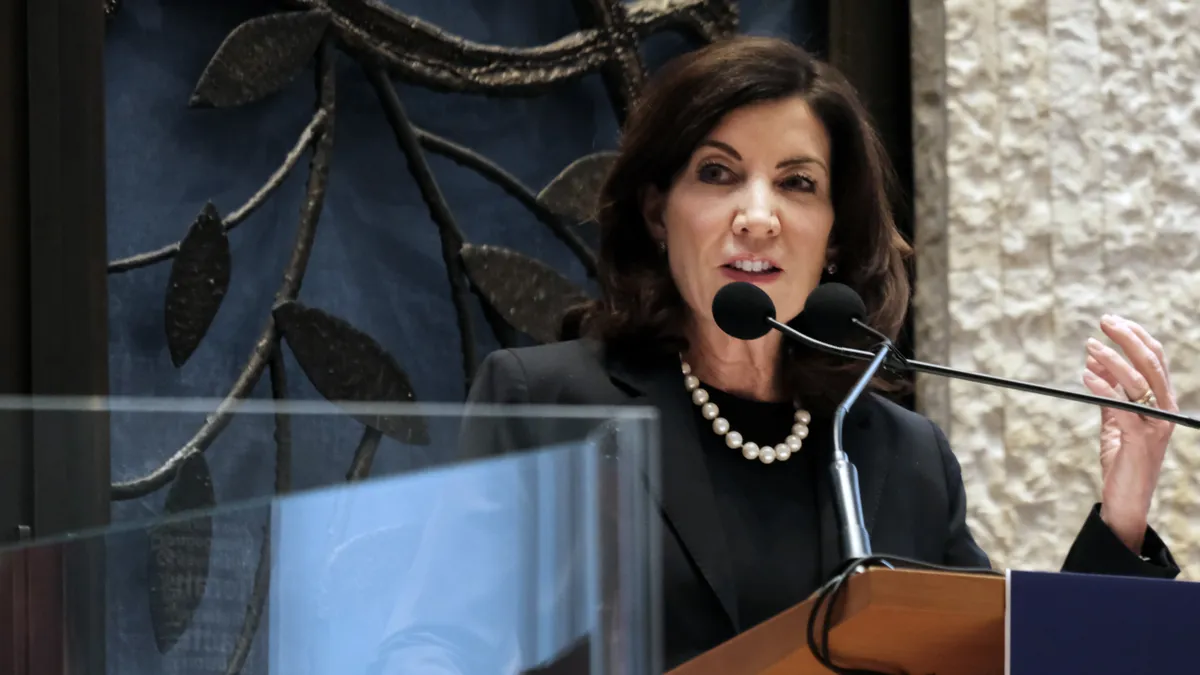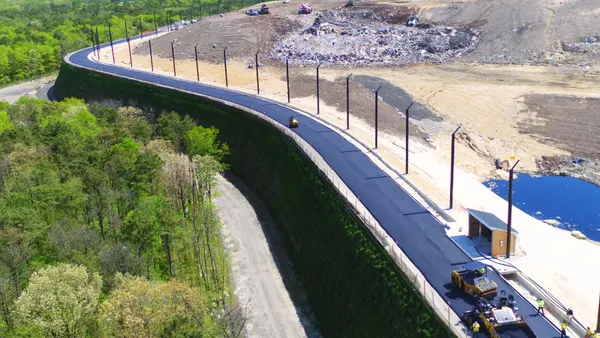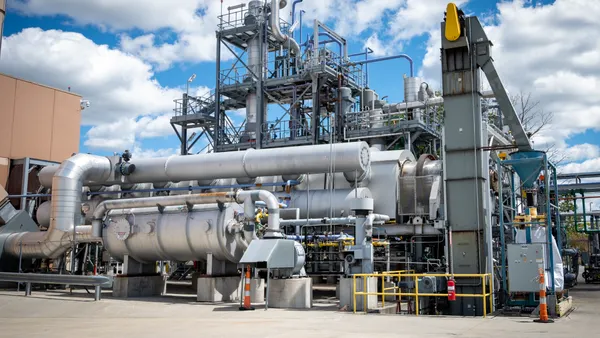Dive Brief:
- An extended producer responsibility program for packaging is not expected to be included in New York’s final fiscal year 2024 state budget, despite Gov. Kathy Hochul spearheading the initiative for a second year.
- The latest draft of the budget bill containing environmental matters does not include mentions of EPR. Hochul had pressed for it in her executive budget, and the Senate had also included it in an original proposed budget. There’s also no mention of a bottle bill expansion, another provision from the Senate’s draft. The Assembly had not included EPR or the bottle bill in its original version.
- The final votes on the budget are expected to wrap up this week. In the meantime, EPR supporters are also continuing their efforts to move packaging bills forward in the state legislature, where two similar bills have been introduced. The legislature adjourns June 8.
Dive Insight:
Though the final details of the state budget have not been finalized, some recycling stakeholders have been expecting for several weeks that EPR for packaging would be cut, and they don’t expect the provision to reappear at the last minute.
This would mark the second time EPR will not be included in the state budget despite Hochul saying it’s an important driver for cleaning up litter and saving municipalities money. The budget was due March 31, but it has been delayed by more than a month as the governor and lawmakers debated issues such as housing and bail reform.
The strategy of placing EPR policy in the budget has faced an uphill battle from the get-go, since some stakeholders disagreed with details of the program or believed the process is better handled in separate legislation. The state Assembly typically holds the position that the budget should focus on finances and not include policy measures. EPR faced similar hurdles in the 2022 budget.
Supporters of EPR for packaging have been focusing their efforts on two similar bills, which “likely won’t be taken up until after the budget,” said Eric Goldstein, New York City environment director for the Natural Resources Defense Council, in an email.
NRDC is a major supporter of S4246, an EPR for packaging bill led by state Sen. Pete Harckham. The bill requires producers to reduce packaging by 50% over 12 years. It also phases out chemicals such as PFAS and prohibits chemical recycling from being considered a recycling strategy for EPR purposes. Other supporters include the New York League of Conservation Voters and Beyond Plastics.
State Sen. Rachel May has introduced a separate EPR for packaging bill, S1064, which has similar goals to Harckham’s but asks for higher reduction targets; it also includes a labeling provision that would require packaging to have accurate recycling instructions. So far, it hasn’t gotten as much traction as S4246.
The National Waste & Recycling Association has said it does not believe either bill will fully address current recycling management hurdles. Groups like the American Chemistry Council, the Plastics Industry Association and Berry Global opposed Harckham’s bill, voicing concerns over possible negative business impacts, particularly to potential chemical recycling companies that may want to operate in the state.
Beyond Plastics scheduled a rally for today at the capitol in Albany, where the group planned to call attention to Harckham’s S4246 as a strong EPR policy for the state. The group also plans to advocate for bottle bill expansion bill S237, which is the same proposal as the one mentioned in the state Senate’s proposed budget. Led by Sen. May, the bill calls to increase the deposit for beverage containers to 10 cents and increase the handling fee to six cents. More types of containers would be accepted, such as wine, liquor and cider, as well as certain soft drinks, juice, coffee and tea. It would also create postconsumer recycled content requirements for returnable containers.
Four states have already passed a packaging EPR bill: Maine, Oregon, Colorado and California. Maryland recently passed an EPR study bill, while Connecticut is working on a waste bill that includes EPR for packaging provisions, but that bill would pause EPR plans until four other states — at least one of which borders Connecticut — implement their own packaging EPR policies.











